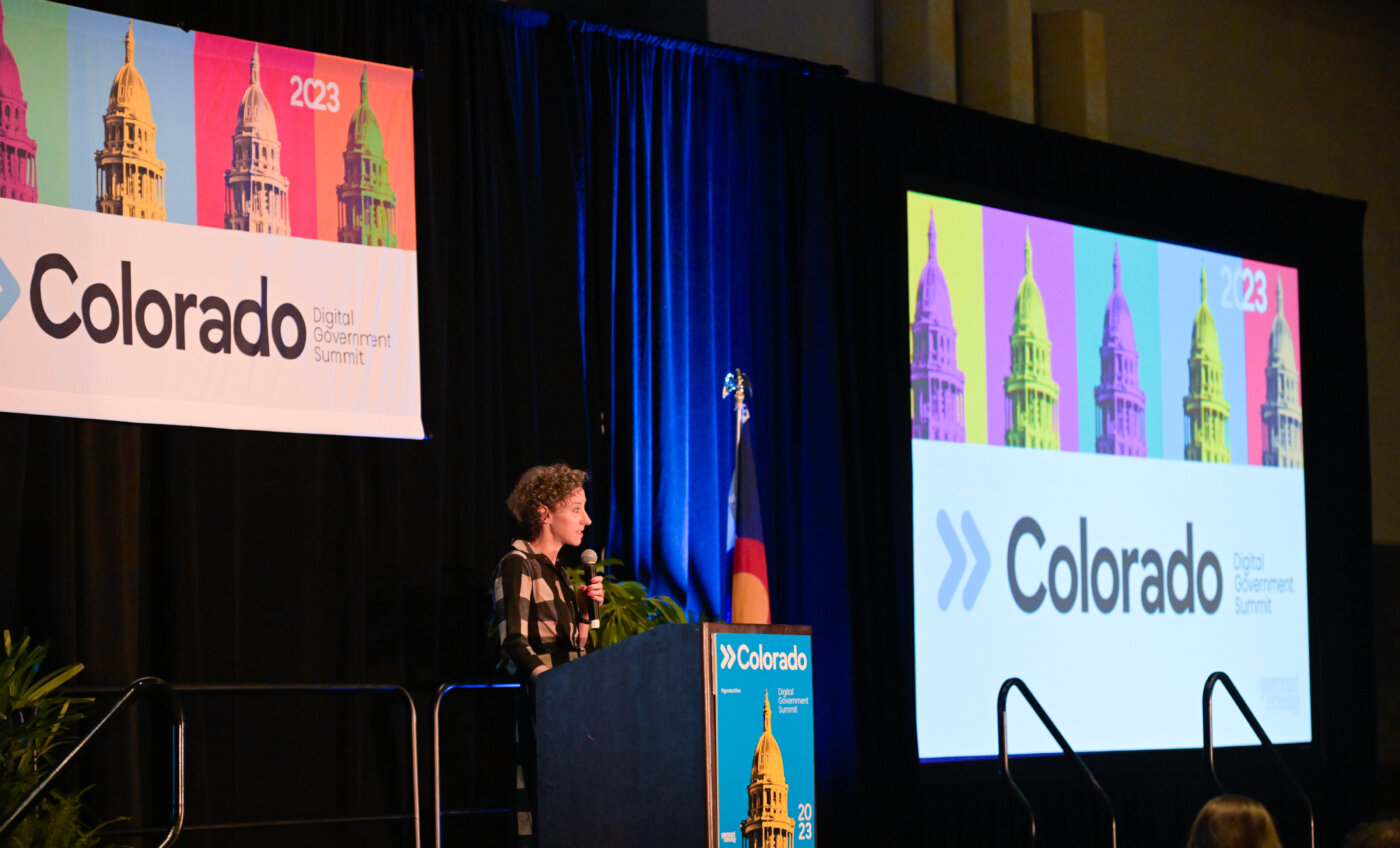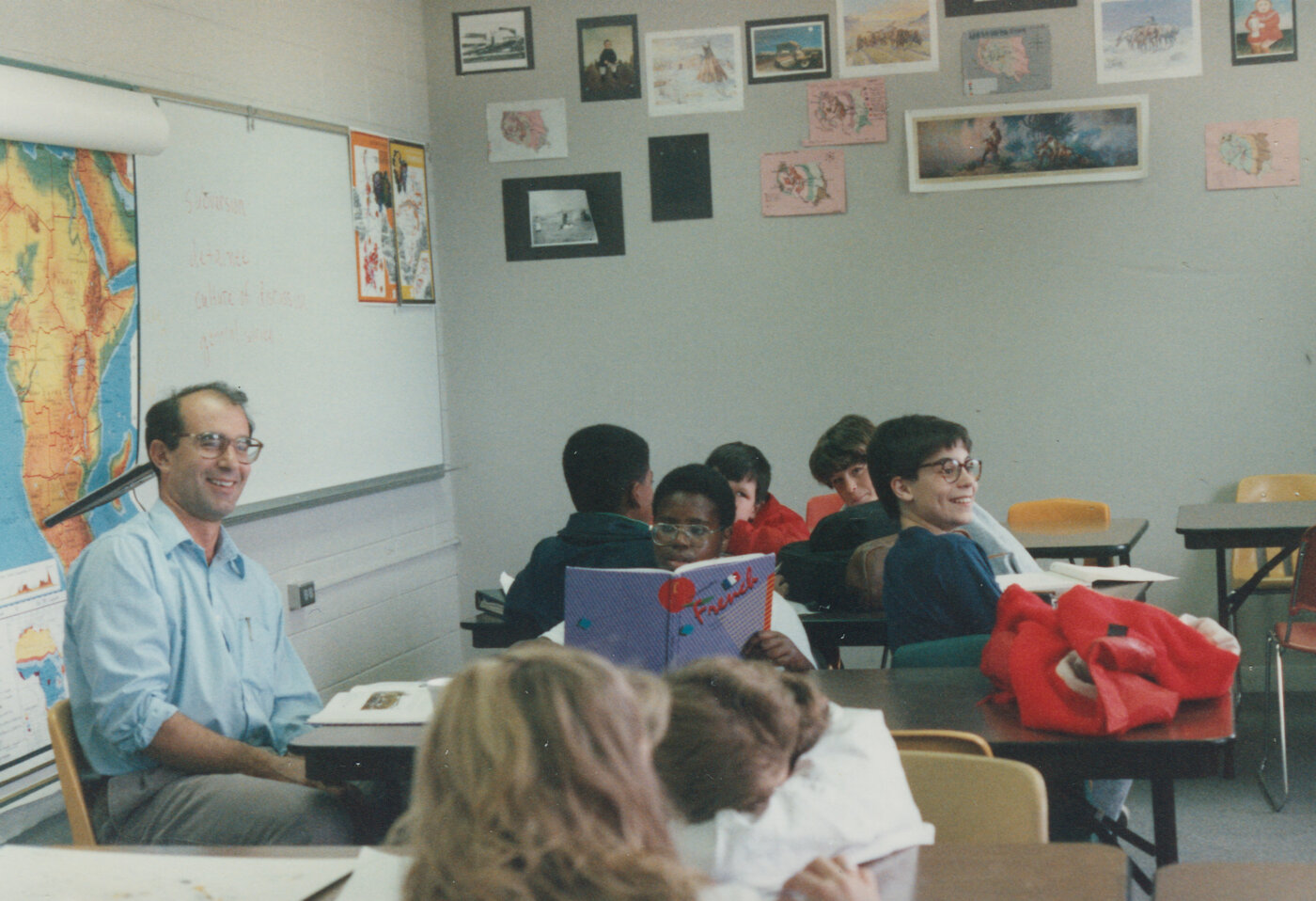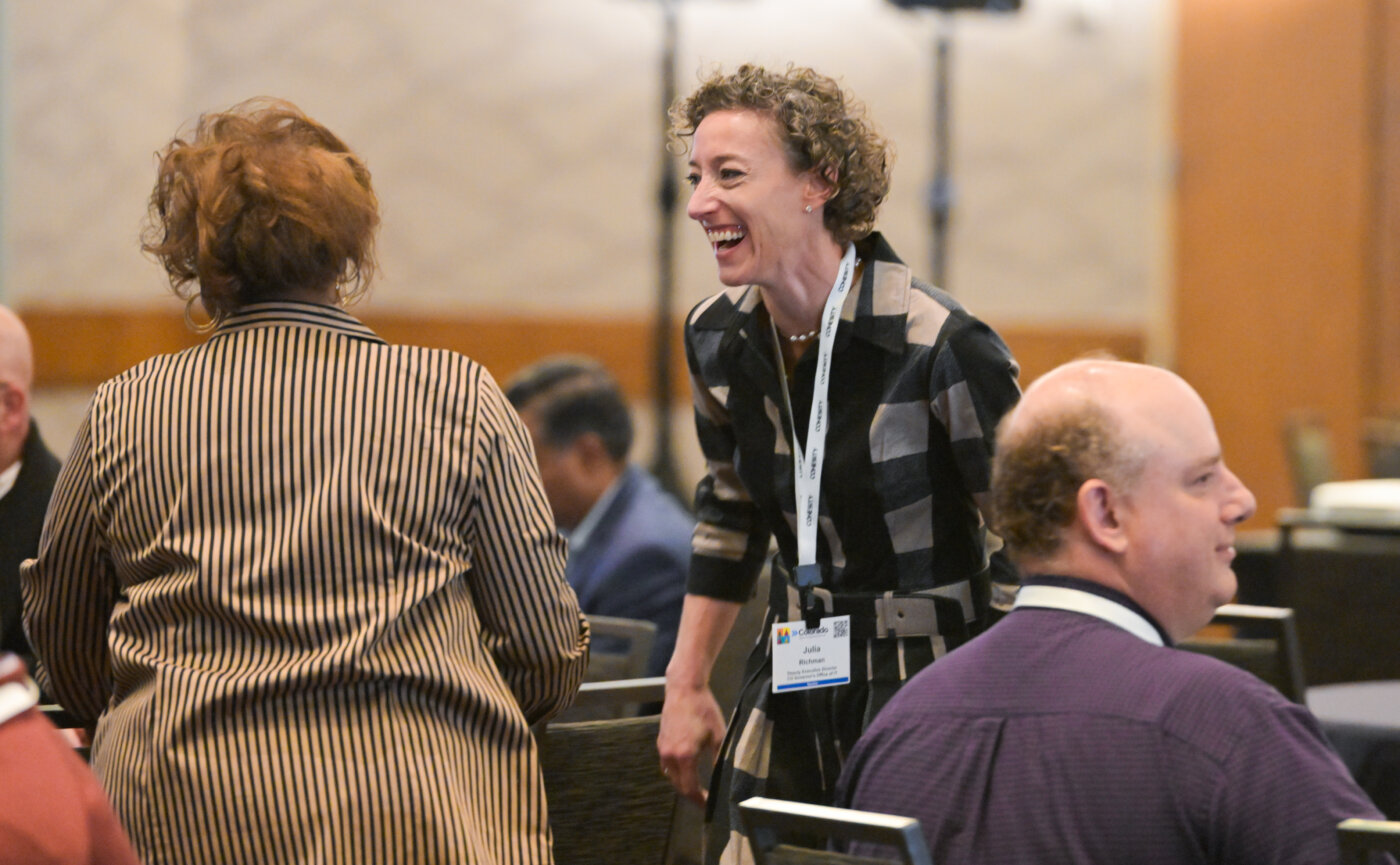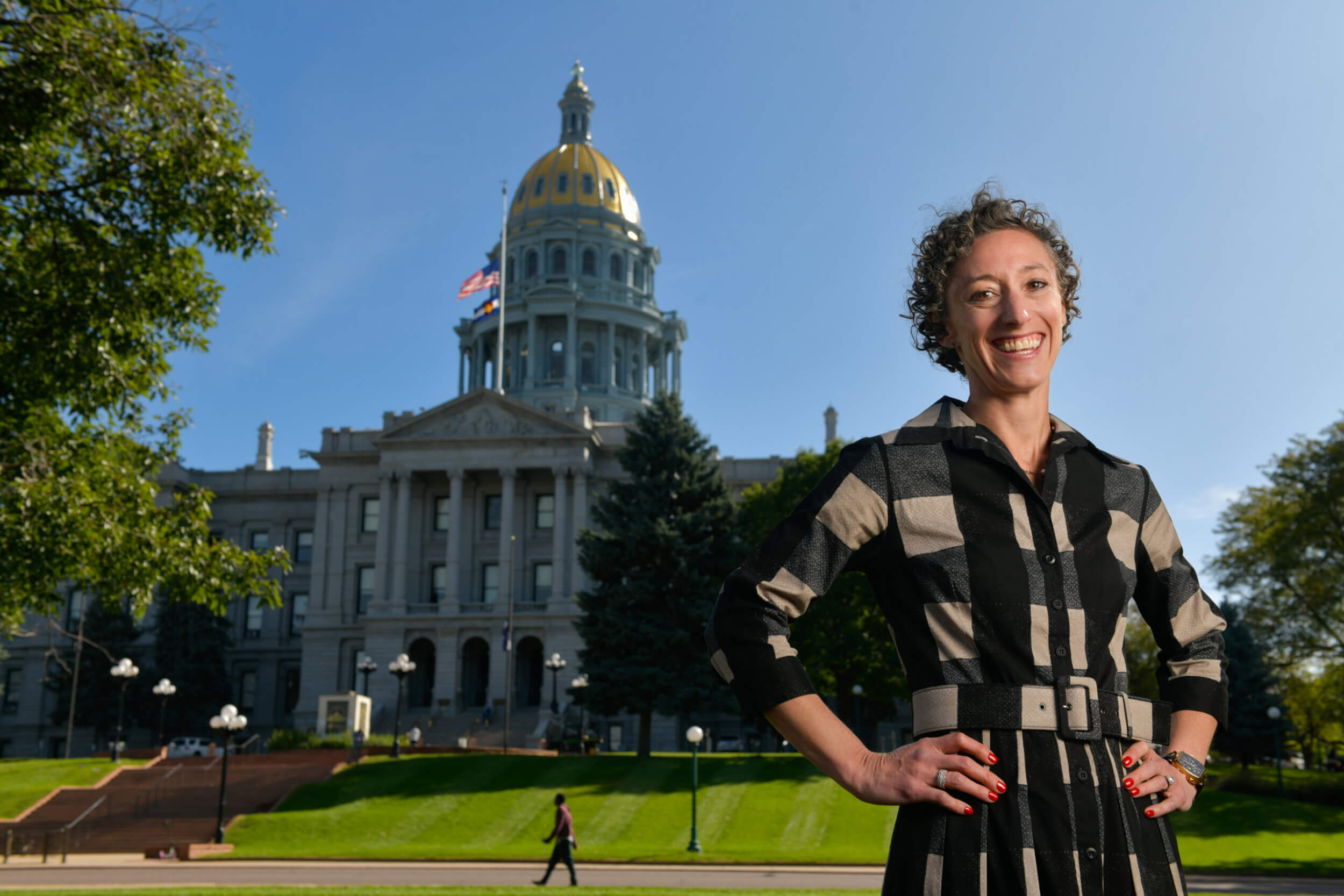Julia Richman ’00 is the kind of high-level public-sector technology strategist who will tell you sometimes technology isn’t the best solution to a seemingly technological problem—sometimes it’s not even close. As the former Deputy Executive Director in the Governor’s Office of Information Technology for the State of Colorado, Richman knows from her deep well of experience that sometimes, the most powerful innovations start with asking the simplest of questions: “What is it that people really need?”
Previously the Chief Innovation and Technology Officer for the City of Boulder, Richman loves to share the story of how she helped tackle a hot-button challenge—moving that famously progressive city equitably toward a green economy—with a surprisingly human approach that paid unexpected dividends.
In 2018, she recounts, Boulder was the recipient of a sizable Bloomberg Philanthropies’ Mayors Innovation Challenge award. Her team’s idea was aimed at encouraging low-income residents to transition to shared and electric mobility in support of the city’s sustainability vision. “When you work a couple of jobs,” Richman explains, “you might not be looking to innovate your commute; your car, however old, is your key tool. But currently it’s only the wealthy who can afford to make the switch to shared mobility and electric vehicles (EVs).”
Richman and her team wondered how Boulder could reach those community members who weren’t already part of the “choir” singing the benefits of a green economy. They set out to gather data, likening the effort to “Carpool Karaoke”: They got in the cars of people who volunteered to participate and drove with them to work, asking questions and understanding what mobility barriers they faced.
The residents they sought to work with lived in manufactured home parks, didn’t speak English, and didn’t have the resources to access or even learn about technologies like shared mobility or EVs.
In response, she and her colleagues in the city government started with a reasonable-sounding technology initiative: partnering with the rideshare service Lyft and the e-bike provider BCycle to offer prepaid, environmentally-friendly transportation options to public housing residents. But the early results showed disappointingly low adoption rates among the most underserved communities. Their first experiment, to give away $100K in free rides, failed.
Richman knew they were on the wrong track, and her team reasoned that the problem wasn’t technology; it was trust. “We realized that, of course, you’re not going to hop in a Lyft if no one you know has ever done that. The novelty of the technology didn’t matter; the free money we were handing out for rides didn’t matter, either. Our approach wasn’t going to work unless we first built a network of trust at the community level, through people our constituents knew.”
So Richman and her team worked with liaisons on the ground to prototype a program called Community Connectors, where neighborhood residents were paid to help translate city goals in terms that their neighbors could understand. The program was immediately successful, Richman relates, and it has been borrowed in other municipalities.
When COVID-19 hit soon after, the Community Connectors program was perfectly positioned: It played a central role in educating people about and connecting them to vital public health information, vaccinations, and other resources. Focusing on trust, not technology, turned out to be the innovative solution to a crisis almost no one saw coming.

As the Boulder story vividly demonstrates, Richman is that brand of strategic visionary who thinks so far outside the box that, often, you can’t even see the box from where she’s standing. In this case, not only was technology not the right solution, it wasn’t even addressing the right problem.
Figuring out ways to solve the toughest challenges by drilling down to the essential human wants and needs at their heart is what drives Richman in her work today at the highest levels. Her Governor’s Office of Information Technology had a hand in everything from enabling digital government to using technology to reduce poverty and offer equitable access to state services. Her brand-new role as Senior Vice Chancellor for Operations and Strategy Implementation at the University of Denver makes her the de facto COO of the oldest private research institution in the Rocky Mountain Region.
And she attributes that trajectory to the curiosity, ideological openness, and willingness to engage in debate and thoughtful exchange that she encountered at Colorado Academy.
Foursquare, handstands, and a world of ideas
It’s at CA, Richman attests, that she began seeing herself as the kind of learner and leader who would go on to solve the biggest problems in some of the most dynamic places in the country. “I found this community of curiosity here,” she says, “where my teachers celebrated what I was interested in, and we’d have interesting and challenging conversations when we passed each other in the halls.”

She recalls many a discussion session in former history teacher Jim Blanas’ classroom, where students would spend vast amounts of class time following notions wherever they led. “His classes were more like seminars,” explains Richman, “and we were learning how to think and understand the world, rather than absorbing just a set of facts.”
From physics and math to English and social studies—all areas where she excelled—she came to see how her brain thrived when pulling at threads between complex ideas that spanned multiple fields. She started to understand how so many aspects of our world are connected, with humans, for better or worse, at the center in so many ways.
Her Upper School peers were a critical part of that realization. Doing handstands between classes and playing endless games of foursquare at lunchtime, she says, further encouraged that openness to exploration and making connections. “You’d stand in line to wait your turn to play, and you’d have conversations with people in every grade. Socializing in a way that wasn’t hierarchical made my high school experience unbelievably rich.”
When she went on to Dartmouth College, Richman found herself longing for the heady, interdisciplinary style of learning and community-building that had nourished her at CA, and she pursued a creative major in government, political theory, law, and English and art history, with a focus on Modernism. This seemingly omnivorous endeavor may have surprised her Dartmouth classmates and teachers, but it would have struck a chord with anyone who knew her at CA.
“Most people in my major were future lawyers—a fact I only realized when everyone was applying to law school at the end of college, but I wasn’t,” Richman relates. “The truth was I just liked learning about the law”—just like she relished exploring the influence of the Beat Poets on American identity in the early 20th century, and examining the role of social capital in shaping society.
A passion for tracing the connections between disparate ideas and fields led her to graduate school at the University of Chicago’s Harris School of Public Policy, and then to Deloitte, the global consulting firm that advises the biggest organizations in the world. There she became a star, using her broad background in the humanities, sciences, and public policy to help New York City make progress on its traffic-busting congestion- pricing scheme, Texas to modernize its Department of Public Safety, or Louisiana to build its emergency- management capabilities following hurricanes Katrina and Rita.
After the financial crisis of 2008, she began to specialize in working with large organizations to make their technology operations more cost effective and provide better customer service. Faced with declining tax revenues, mandatory layoffs, and all the other impacts that were felt during the crisis, according to Richman, governments and other big enterprises wanted to find a way to do more with less of everything. At the same time, they were sitting on sprawling technology infrastructures built in the early 2000s that had never been optimized to operate efficiently.
As Richman explains it, “It was a world of transformative cost-cutting, building brand-new technology organizations within governments and businesses where there had been little thoughtfulness or planning before. There were huge numbers of staff all working in silos with separate systems that were incredibly expensive to run. My job was to ask, how do we integrate operations, centralize the services they offer, build a healthy financial model, and figure out how to make decisions?”
Of the field in which she became a technology whisperer to the biggest organizations, Richman acknowledges, “I didn’t start there, but this is what people needed at the time. These are the problems that truly needed to be solved.”
Transforming lives by transforming government
Up for partner when her tenth year at Deloitte rolled around in 2016, Richman found herself reflecting on her options. “How is it that I know so much about Louisiana, New York, and all these other places,” she wondered, “but so much less about my own community?” Her role as a Senior Manager of Strategy and Operations put her in three different cities a week, but she barely had a bottle of mustard in the fridge at home in Denver.
Naturally gravitating to solving big problems, when Richman was recruited for a role leading data and innovation in Boulder, she started thinking, “Cities are really impactful to the daily lives of people; maybe that’s what’s next.” She signed on as a sort of “entrepreneur” within the city’s government, looking at new ways to interact with constituents on a day-to-day level and engage more people in the hard work of governing.

The track record of innovation she built there around meeting human needs through technological and organizational shifts—like the one that led to the creation of the Community Connectors program—next landed her the role in the Governor’s Office of Information Technology, where she saw an even bigger opportunity to transform lives while transforming government.
It was at the very beginning of the COVID-19 pandemic in 2020 when she arrived at the Capitol, and she found a state government scrambling to make the leap to digital services as the whole world went online. “COVID changed everything,” she recalls. “Government didn’t really believe it could do things online, and then all of a sudden they had no other choice. It was an awesome time for innovation.”
Seizing on crisis as opportunity, Richman looked around at the thousand employees operating under a half-billion dollar budget in the state’s technology organization and saw tremendous unrealized potential. “For the first couple of years, my focus was just organizing our work, making it structured and repeatable, and creating an inclusive, sustainable place to work.”
The Office of Information Technology went entirely remote as Richman endorsed the internal campaign, “Think differently.” While in the past, government acted in paternalistic ways—“We know what you need and are here to provide it for you”—the paradigm shift accelerated by the pandemic required user-centered governing.
“The new generation of residents who grew up with technology expect government to work more like Google or Grubhub,” Richman explains, “and they’re demanding that someone address their concerns. Now, governments everywhere are starting to think about themselves and how they are organized, and working to put the voices and needs of their constituents first.”
Under Richman’s leadership, Colorado launched a strategic plan that calls for the reinvention of digital governing; the goal is fundamentally to leverage technology to improve people’s lives. “How do we get people access to the services they’re already eligible for, but historically have been hidden behind the administrative barriers of paperwork and the physical barriers of having to travel to stand in line in an office?”
The Division of Motor Vehicles is a prime example. While some states are just barely arriving at digital-first motor vehicle transactions, a majority of those interactions in Colorado happen online in less than two minutes, instead of requiring hours of waiting. “That’s exactly the kind of experience we want to enable,” says Richman.
But at the same time, just as in Boulder, Richman kept asking her team, what are the human needs at the heart of what we’re trying to do? In some cases, that means people, not technology, might hold the answer. “What if you’re applying for unemployment assistance?” she offers. “A big chunk of that transaction may be available online, but when that person is stressed, has unique circumstances, or needs help, they want a human being on the other end. Through our research, we found that at least 20% of Coloradans still want some form of in-person option.”
The ability to hold onto two contrary ideas at the same time—in-person versus digital, green technology versus community-building—is the superpower that allows Richman to push the boundaries of what technology can do while attending to the all-important human needs it must serve.
And yes, she names CA as the place where that strength flourished.
“Being a constant learner is my job,” Richman explains. “There are no easy solutions in government anymore: everything is intersectional and complicated. Just like shooting the breeze in the Upper School lobby or in the foursquare line at CA, being willing to have a conversation, to question assumptions, and to bring the right tools and ideas to the table—there’s no other way to solve problems now.”
